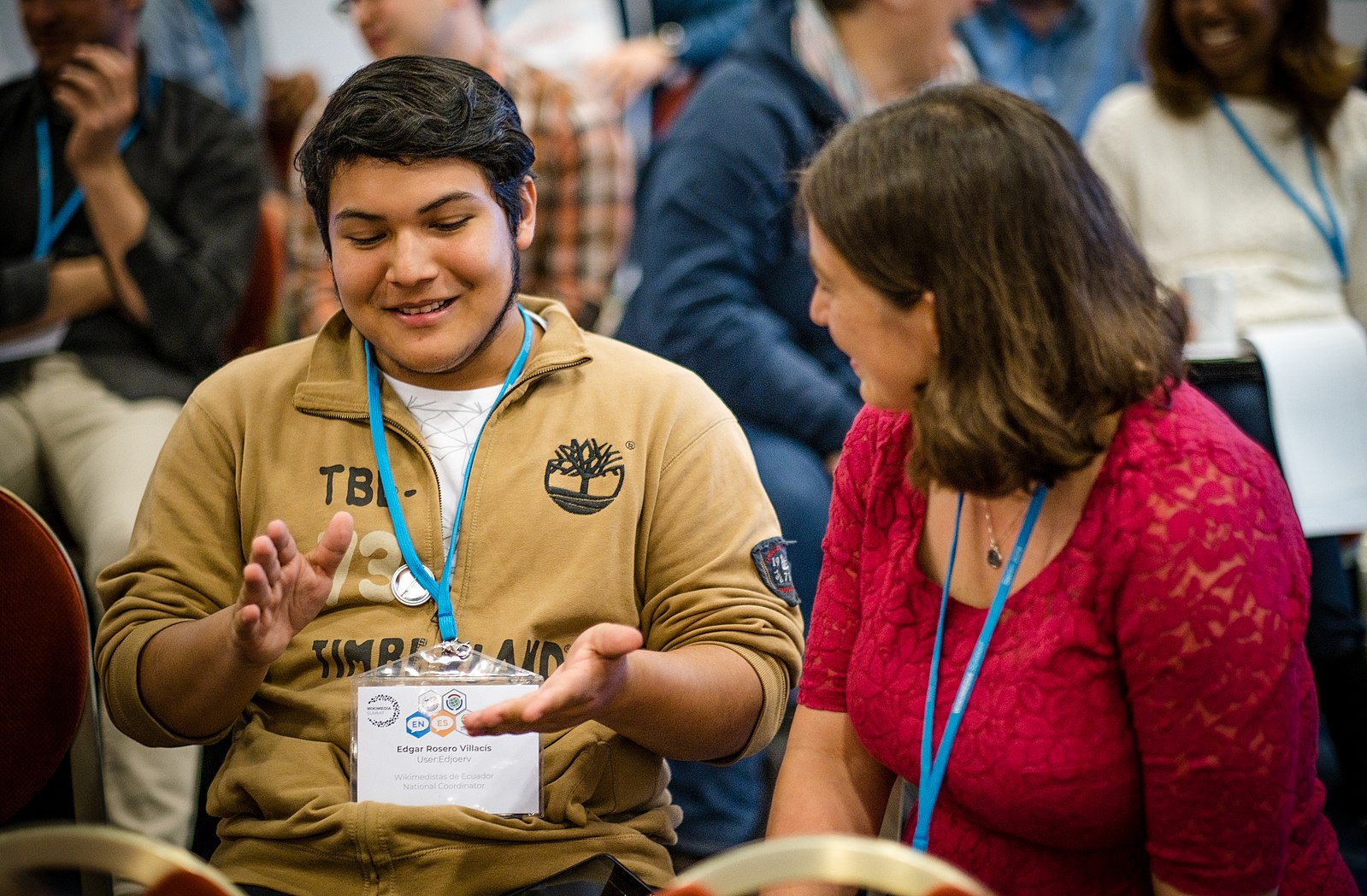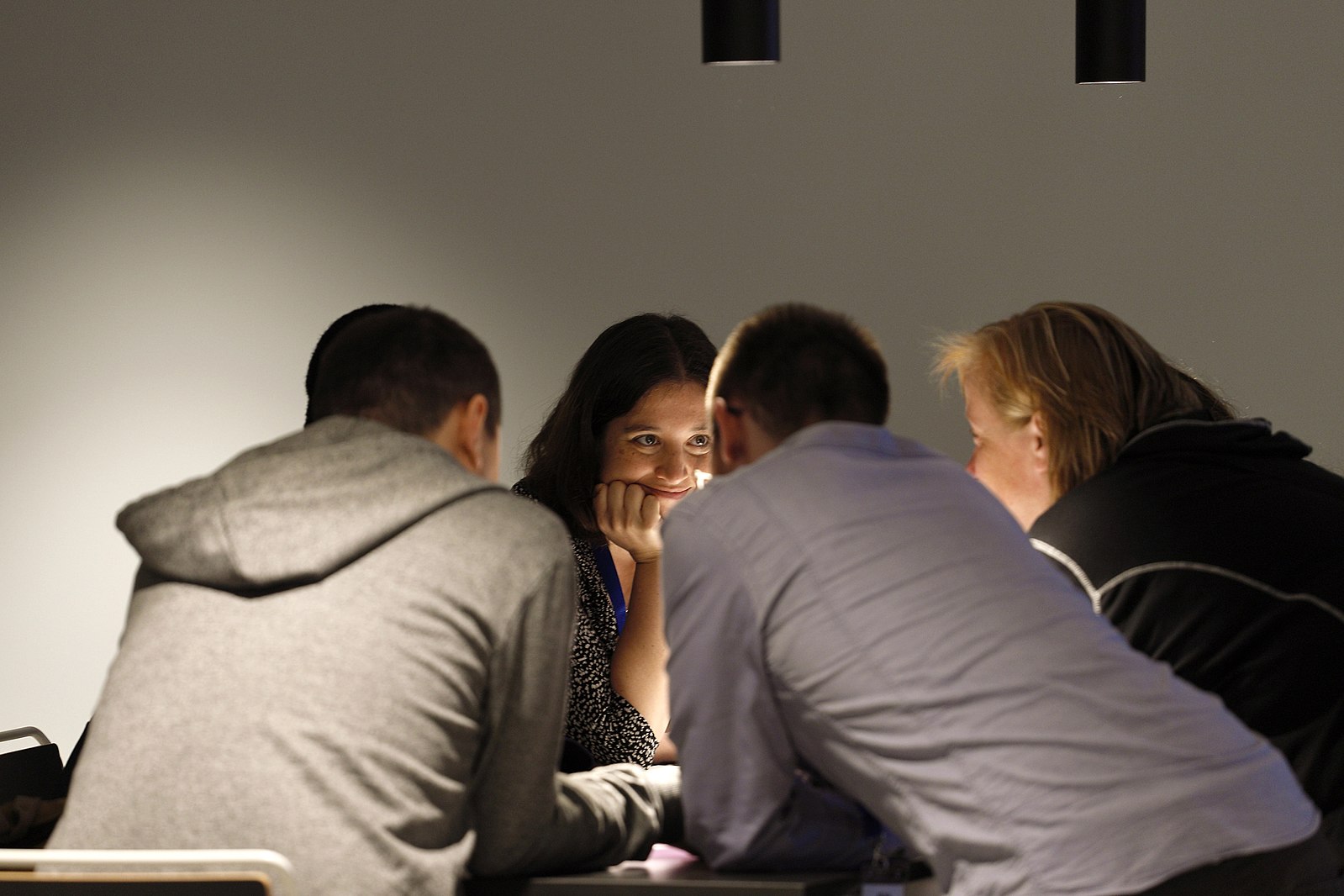A few weeks ago, I was honored to travel to Europe where I participated in two conferences related to the broader Wikimedia movement: The Wikimedia Summit in Berlin and the Wikimedia + Education Conference in Donostia. Wiki Education is one of the largest organizations in the Wikimedia movement in terms of both budget and number of program participants, so we had a lot to share with other organizations. But, as always, we also have a lot to learn from the experiences of others who share our mission to improve Wikimedia content globally.

Image by Jason Krüger, via Wikimedia Commons.
This year’s Wikimedia Summit was focused exclusively on the Wikimedia movement strategy. It was an opportunity for organizations like Wiki Education to provide feedback on progress to date. Wiki Education’s work supports both knowledge equity — our work to improve content gaps related to equity is critically important, given how much emerging communities translate from the English Wikipedia — and knowledge as service, in which our work on the Program & Events Dashboard has led to it being one of the most used tools across languages and projects.
The Wikimedia Summit was also an important opportunity to meet up with various global collaborators. Like most conferences, the hallway conversations were incredibly meaningful to me, as in both pre-arranged and casual conversations with my global colleagues, I learned a lot about what’s happening in the movement, what others have learned in their programs, and thought about how we can apply learnings to our own programs. As our Chief Programs Officer, I’ve always felt this conference was particularly relevant, as it includes many people who are running programs globally, and has given me the opportunity to gather learnings from their programmatic work.

Image by Maialen Andres-Foku, via Wikimedia Commons.
The Wikimedia + Education Conference continued this trend. The three-day conference was a great opportunity to connect with other program leaders globally who are running education programs. I learned a lot about how others have structured their programs, the challenges they’ve faced, and the ways they’ve overcame those challenges through the excellent program. And again, hallway conversations were a great way to supplement the program.
I also had the opportunity to present three sessions at the Wikimedia + Education Conference. I gave a 20-minute talk about the learnings from our Scholars & Scientists program on how to get subject matter experts to edit Wikipedia. I also led a 90-minute workshop on how to scale an education program while keeping a focus on equity — one attendee told me this was their favorite session, which meant a lot to me!
And finally, I collaborated with colleagues in Macedonia, Jordan, Indonesia, and Serbia in sharing how to use the Program & Events Dashboard for an education program in another 90-minute workshop. This session collected information on what people liked and what additional features we should develop for the Program & Events Dashboard, which I’ve passed on to Wiki Education’s technical team. The Dashboard is one of the three focus areas for the upcoming Wikimedia Hackathon in Prague, so we’re excited to see if we can get Hackathon attendees to tackle some of the items on the wish list.
All in all, I appreciated the opportunity to both share what we’ve learned with the global Wikimedia community and be inspired by others’ learnings. I look forward to continuing to participate in our global Wikimedia movement as we all pursue the vision of sharing the sum of all human knowledge.
